the number of children who have been infected with the Covid virus has grown astronomically Covid cases among Wisconsin children ages 4 – 8 increased a whopping 944% between early June to early August. Case increases among other Wisconsin childhood groups was in the 400% - 500% range. Talk about canaries in the coalmine. If we had seen a nearly 1000% increase in childhood shootings or abuse or car accidents – would we have such a tepid response?
The Wisconsin Department of Health Services reports that between the week of June 6th and the week of August 4th, the number of children who have been infected with the Covid virus has grown astronomically as show in the accompanying chart. When I look at what is occurring with kids in Wisconsin, I struggle with my anger against those who refuse to get vaccinated, and I think I’m not alone. My Quaker sensibilities tell me to just get over it and seek to find the grace within each person. But that’s harder than I thought it would be. I have two granddaughters, ages five years old and seven-months old. Their parents – and my wife and I – do everything we can to protect them from getting infected and thus far we’ve been successful. But we know that with the Delta Variant now representing 80% of those infected in our region, and less than 50% of the population fully vaccinated – there is only so much we can do; especially with one granddaughter in daycare and the other in summer day camp and just weeks away from starting school. I am angry and I am fearful. I understand that we can’t paint all of these vaccine nay-sayers with the same brush. After all, some are motivated because they don’t want to put foreign substance in their bodies. Others do so out of fear or mistrust of the government because of past abuses. Many are simply being misled and their true fault is placing their trust in people who use them for personal and political gain. But that doesn’t excuse those who know better but who are promulgating false and misleading information about the vaccine for purely political reasons. As my mother would say “there should be a special place in hell for those people.” But since I don’t believe in hell I find no solace in the prospect of biblical retribution. And so, as a concerned grandparent, and as a Quaker what can I do? What can we – as a community – do? Here is my thought. I’m going to ask everyone I meet if they are vaccinated, and if not, I’m going to provide them with some version of the following information. Maybe I should print up business cards with this information and hand it to them.
The solution is simple: Get Vaccinated. Protect Wisconsin Children. And spread the word.
0 Comments
You only get to community through trust, and you only get to trust through integrity. This picture speaks to me on so many levels, and not just because I am a MKE Bucks fan.
There is the obvious:
I also realize there are 17,000 fans in the arena and 25,000 fans outside in the Deer District, and millions of fans across the world cheering for their team each time a basket is scored. If you are a fan, the price tag of the player or the arena is meaningless. If you are a fan, its about projecting your desires and spirit into the success of the team. It is about “your” team representing you or “your” city. It’s about community. I admit that I am a sports fan, especially football, basketball and hockey. I don’t know if that is very Quakerly or not, but I’ve watched the best part of sports bring out the best part of people; both players and fans. For our two youngest children, sports was a big part of their growing up, and in their personal and emotional development. I used to tease that our youngest daughter never saw a sport that she didn’t like. She played soccer, baseball, fast pitch softball, volleyball, basketball (which was her first love) and she ran cross-country track. She grew up in a neighborhood of all boys, so if she wanted to play – she had to come ready to play hard and to play her best. I coached her soccer team which was co-ed. In our final season, we were 7-1 wins over losses. And we got there because we had a “secret weapon” which was a core of four girls who all had older brothers. These four girls learned – from competing with their brothers – how to give as good as they got; how to not back down; how to give your personal best each and every game. When done right, sports is about building community: the community of the team and the support of the geographic region which the team represents. But perhaps even more importantly, sports is about becoming the best person one can possibly be. That’s how I justify being a Quaker who is a sports fan. From my perspective as a fan, as a coach, and as a competitor, sports is about community, and trust, and integrity. If each player’s goal is to reach his/her personal best and to give that best each and every time they step into the arena, then they will win the trust of their fellow team mates and they will contribute to a strong sense of team or of community. You only get to community through trust, and you only get to trust through integrity. That’s what I see in this picture: Community, trust, and integrity. Go Bucks!
I have a friend who is a pastor of a local suburban church and who operates a street ministry in Milwaukee. This pastor, along with his staff and volunteers routinely sweep through the streets of the city looking for people they can help; people who are hungry, who are homeless, who are alcohol and/or drug addicted, who are mentally ill. They seek out the kind of people most of us try to avoid or ignore. They provide food, clothing, referrals for services – whatever is helpful. But mostly, they provide a tangible love for those who haven’t felt loved for a very long time.
Here is an excerpt from a recent post from this pastor – about a fellow he has seen off and on for the past six or seven years. Every time I see him, I give him a hug. I find some words to encourage him, as does everyone else. We don’t try to change him. We do try to help him remember a time before drugs, before the all-consuming dope game. We make sure he has numbers for recovery resources, and that he has our numbers for when he’s ready. We put people around him who made it out, got clean, and are living joy-filled lives. But mostly we just love him. We have released him in love to the care of his higher power, and that allows us to love him without judgement or trying to control him. I can’t love like that, and for that long. Maybe I could hang with this addict for several months, perhaps even a year. But, seven years, while watching the same destructive and drug induced behaviors? I’m sure I would have turned my back by now. I’m sure I would have justified my actions by quoting the scripture about how one shouldn’t cast pearls before swine; that time and resources are too precious to spend on someone who clearly doesn’t want to change. I wonder, what would it take for me to get to that place where my pastor friend lives; to accept others as he does, to love others unconditionally; to be so faith filled that I can just do my work and trust that the Divine will take care of all the rest. I figure that this pastor can persist in this seven year relationship with a mostly off the wagon drug addict because he doesn’t own the outcome. He has no ego involved in the addict’s success. The pastor only owns the outreach and the sense that he can just simply love this person until either God or drugs, or death wins out. As the serendipity of the universe would have it, I was letting this article “rest” for a bit because it didn’t feel quite right. While doing so, I ran across a quote from author Anais Nin on one of my social media sites, which says: “ You can’t save people. You can only love them.” And so the message from my pastor friend and the message from the universe is pretty straight forward: get your ego out of the way and just embody the love of the Divine to those you meet. Ok, maybe not so easy. In fact, I feel pretty unworthy of becoming the love of God incarnate in the world. As I prayed on this challenge, a plan began to appear. The first step is to surrender myself to God’s loving embrace. I must accept that regardless of what I have done or what I have failed to do, I am the Divine’s beloved. If I can accept that I am loved with all my warts and failings, then it is easier to share that love with others, which leads to the second step: love without conditions. After all, who am I to judge who is worthy of love? Perhaps, my primary job is just to love. The third step is to just do it. Just begin loving people without conditions. Just accept that I am a failed human being who is loved and thus I can love others who are fellow failures. I wrote to my pastor friend and told him that I couldn’t do what he does, that I couldn’t love like he loves. In response he said, “I’m just doing penance, Mike. My boss does the work.” Maybe it is that simple. Maybe I just need to surrender myself to the care of my higher power and let God work the rest out. 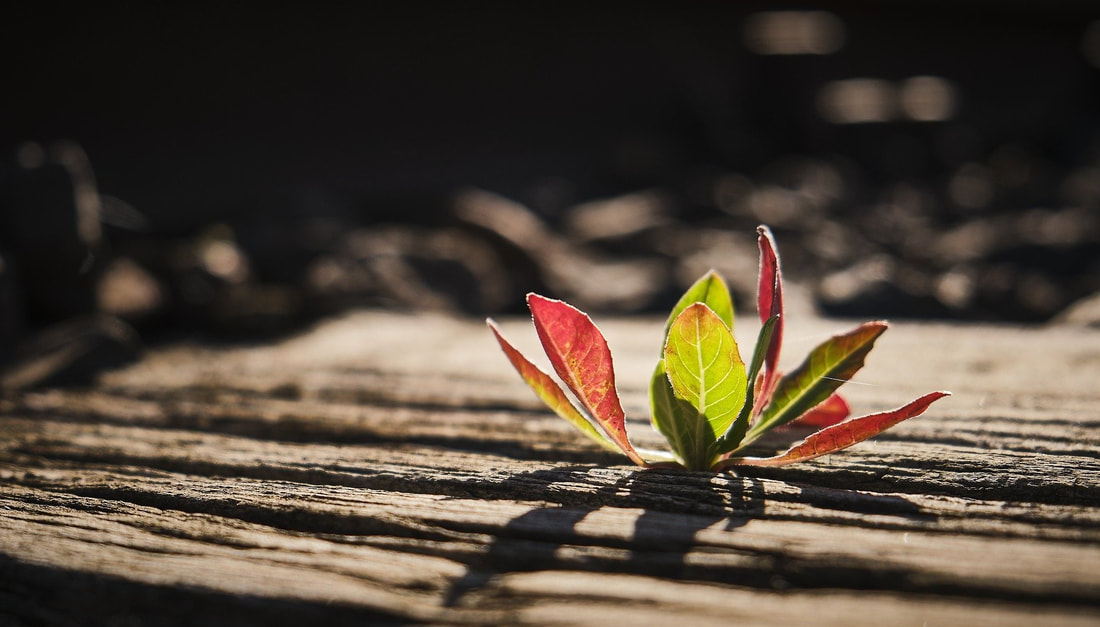 Image by Daniel Kirsch from Pixabay
“My whole soul is in it” said President Biden as he reminded us of the many challenges facing our country and the need to come together – as one nation – to address them. In a country so bitterly divided, it is hard to envision how we become again a nation united. But united we must be to address a combination of issues more dire than those faced by any of our forbearers.
And so, we must find a way to heal. I never saw myself as a healer, but yet the thought of becoming a healer came to me as I sat in expectant silence during a recent Quaker Meeting for Worship. We had just suffered through the January 6th insurrection at our nation’s Capitol and several of my fellow Quakers spoke about how they were affected by the attack on our democracy. In the Quaker tradition, we don’t have pastors. The expectation is that each of us is called upon to minister to the rest of our community and to the world. So, as I sat in silence and listened to my Friends speak of their despair, I was wondering what I could do to help heal their pain. And the thought that bubbled up from somewhere deep within me was that I need to become a healer. Since that time I’ve been sitting with this idea of the act of healing and wondering just what it means for me on a practical level. Taking on the role of healer is difficult for me because I have most often seen myself as an agitator for justice. My inclination is more to stir up feelings of anger in order to organize people to seek collective action for change than it is to heal the pain in order to build community. To be honest, the idea of becoming a healer didn’t really sit well with me. It didn’t feel authentic and if it didn’t feel authentic to me, I’m pretty sure any actions I took in this regard would seem disingenuous to those who know me. I felt that I would be putting on an act. Thankfully, as I wrestled with the idea of healing, one of my daily meditation readings quoted St. Augustine of the Catholic Church stating “Love (God) and do what you will.” It was most helpful to dig deeper and find the context of this quote, which follows: Once for all, then, a short precept is given thee: Love, and do what thou wilt: whether thou hold thy peace, through love hold thy peace; whether thou cry out, through love cry out; whether thou correct, through love correct; whether thou spare, through love do thou spare: let the root of love be within, of this root can nothing spring but what is good (Writings of Augustine -Ten Homilies on the First Epistle of John. Tract 7:8) The basic concept then is that love must become the root of all actions. So, in order to heal our society, we must first dig deeply into understanding ourselves and what motivates our actions. If we are motivated out of love, then we can confront dishonesty and hypocrisy in a way that informs but does not diminish the other. If we are motivated out of love, then we can organize for policies that sustain our environment, but in a way that doesn’t demonize those opposed. If we are motivated out of love, then we can confront white supremacy but with a focus on supporting historically oppressed people and communities. I’ll give you a real life example. I grew up in western Pennsylvania, which has become a core area of support for Donald Trump. Through social media, I remain connected to some of my friends from back there. We are as far apart as people can possibly be when it comes to politics and we spar back and forth on social media about our differences. During one encounter, a liberal friend of mine posted on my account that I should “cut those guys loose…leave them in the cornfield.” It was a tempting thought to just block these friends and eliminate their commentary from my media feed. Instead, I posted the following statement: While I completely disagree with them politically, these fellows are my friends. We grew up together. We had many an adventure together. We may argue and disagree, but they are like brothers to me. Since that post, the tone of these social media debates has changed. We still disagree, but the vitriol is gone from all sides. I let love lead, from which good sprang forth. Hopefully, I can continue to do so as a way to heal those I encounter. If we all do that – create a community of loving healers – perhaps America still has a chance.
During these especially troubling times, I have grappled with the question of whether or not God intervenes in the world. As I’ve written before, I don’t believe that the Spirit acts as a life guard who will swim out and save us when we have strayed too far from shore. Instead, I believe that our internal guide is there all along, counselling us to stop swimming and to turn around before it is too late. But, I must confess that there have been many times during the past couple of years where I wanted the Divine to just step in and make things better because the evil in the world seemed too overpowering.
Times when…
And so much more I know – intellectually – that at the very same time when I am crying out to the Divine to stop the evil from advancing in the world, that the Spirit is calling out to me, urging me to be the voice, the eyes, the hands the spirit of God, and to embody the love of others that God reserves for each of us. But often, I find it too hard to embody the love of the Spirit for others. All too often, I just want to give over to God the very actions that God is asking of me. Sometimes, the world seems too scary. Many times, the calling is daunting. Life would be so much easier if all I had to do was pray and then the Spirit would descend upon the world and all would be fresh and new and innocent again. Praying is so much easier to accomplish than doing. But alas, we are not here to simply offer up our prayers. We are here to offer up our beings in service to the call of the Divine. We are here to do. We are here to love. We are here to raise our voices on behalf of others. I know with all certainty that the Divine is calling upon each and every one of us to act. I know this because of the vast number of issues confronting us, each of which presents an opportunity to breath the love of God into the world. In these times of uncertainty and angst, perhaps we can be inspired by – ironically - the Cadet Prayer that is displayed at the West Point Chapel O God, our Father, Thou Searcher of Human hearts, help us to draw near to Thee in sincerity and truth. May our religion be filled with gladness and may our worship of Thee be natural. Strengthen and increase our admiration for honest dealing and clean thinking, and suffer not our hatred of hypocrisy and pretense ever to diminish. Encourage us in our endeavor to live above the common level of life. Make us to choose the harder right instead of the easier wrong, and never to be content with a half-truth when the whole can be won. Endow us with courage that is born of loyalty to all that is noble and worthy, that scorns to compromise with vice and injustice and knows no fear when truth and right are in jeopardy. Guard us against flippancy and irreverence in the sacred things of life. Grant us new ties of friendship and new opportunities of service. Kindle our hearts in fellowship with those of a cheerful countenance, and soften our hearts with sympathy for those who sorrow and suffer. This Cadet Prayer is – first and foremost – a prayer that asks God of only one thing: to give us the strength to serve. And, that must be enough.
(This article was first published in the September 2020 edition of Friends Journal, a national magazine of Quaker thought and life today)
I have found that the hardest part of being a Quaker is knowing that I must work out my own understanding of the Divine. A friend of mine once teased that we should sell T-shirts that say: “Become a Quaker. It’s a pain in the butt.” The journey from a sense of God who is “out there” and who is both loving and judgmental, to an understanding of the Divine as a still, small voice guiding us to deeper faith and understanding is certainly not a straight line. Most of the Quakers I know are convinced Friends, those who came to meeting after growing up in another faith tradition and after spending a fair amount of time wandering in the wilderness trying to find an image of God that can be reconciled in the heart. Many, like me, struggled with a paradoxical image of Spirit as both a welcoming mother and an exacting father. On one hand, the Divine beckons us into a warm and loving embrace; with the other, it offers a stiffened arm and warns us to not mess up lest we incur God’s wrath and be cast into eternal damnation. Growing up, this confusing sense of divine love coupled with divine retribution permeated my life. I was raised in a robust Italian community in a small town in western Pennsylvania. Like all of my friends, I attended Saint Rita’s Catholic School and served as an altar boy in the church. From early on, the nuns taught that God was omnipresent, omnipotent, and omniscient. The thought that a divine being who is everywhere, all knowing, and all powerful was more frightening than comforting to a young lad who wanted to pray and “be good” but who often failed at the effort. It is difficult to justify a God that is all knowing, ever present, and all powerful with the reality of sin and the earthly destruction in the world. One of the age-old questions is: How can a loving and all-powerful God allow disease, genocide, slavery, and any of the untold ways that humanity inflicts harm on one other? Both skeptics and faithful alike have grappled with this dilemma. In his heartfelt book A Grief Observed, C.S. Lewis asked, “Meanwhile, where is God?” as he struggled with the pain and suffering of his wife’s battle with cancer. Lewis observed that when life is going well, our relationship with the Divine is fine, and we are “welcomed with open arms.” But when tragedy strikes, according to Lewis, God slams and double-bolts the door. The silence is oppressive, and, “There are no lights in the windows.” I suspect we have all wrestled with cosmic silence in the face of anguished prayer at some point in our lives. In most Christian traditions, we are taught that Jesus is the answer to our salvation. At Milwaukee (Wisc.) Meeting, we host sessions on Quakerism for newcomers, one of which discusses the roots of Christianity in Quaker history, faith, and practice. During this session, we ask participants where they stand on the “Jesus continuum,” which provides a range of five perspectives of Jesus. On one end, Jesus is seen as a personal savior and son of God; in the middle of the continuum, Jesus is seen as a teacher and healer; on the opposite end of the spectrum, Jesus is not part of any spiritual path. It is remarkable to watch this process unfold and see that Friends span the entirety of the range. My own journey has taken me through all five of the steps on the continuum. I was often puzzled by my Quaker Friends who professed that they did not believe in a God. Most times, when I delved deeper into the understanding of these “godless Quakers,” I came to learn that many are pantheists, who believe that a spiritual energy is infused in everything in the universe—from cosmic dust in the furthest reaches of space to the tiniest microbes in the soil under our feet. But they don’t believe that a divine presence is guiding the world. The pantheist point of view is attractive. It takes away the paradoxical dilemma of a God that is loving yet prone to retribution. But it doesn’t adequately deal with the question of evil. The panentheist theodicy of God is one that sees the Divine in all of creation—similar to the pantheists—but which also believes that there is a Divine Spirit directing it all. God is woven into the fabric of the cosmos, but the Divine is also the weaver of the fabric. I have come to adopt this panentheist point of view from a very unique perspective. I am an avid sailor and spend as much time as possible sailing the inland sea known as Lake Michigan. After 20 years of sailing, sailboat racing, and cruising, I have learned to love and respect the lake. On one particular night in late July, we were coming in from a Wednesday evening race. The wind was light, and as we got closer to land, it became warmer. The sun was setting in the west behind the city skyline when at the same moment, the full moon began to rise up from the lake on the eastern horizon. I was standing on the back of the boat and just allowing the sensation of the evening to wash over me, when I heard a quiet thought from within saying: “This and thee are the glory of God.” It is easy to find the wonder of the Divine within the beauty of the world. It is quite another thing to feel at one with it all, to be welcomed into the grace of creation in a way designed to make sense uniquely to oneself. And by doing so, the message was clear: the infinite aspect of God is the wonder of the cosmos. The intimate part of God is that quiet-yet-recognizable voice that speaks in ways designed to help us understand. Unfortunately, like C. S. Lewis, we sometimes don’t hear the call; the voice of the Divine is muted. If we are not grounded in community and in a faith that believes we will eventually hear our internal guide, then we become susceptible to the more troubling aspects of our own ego and crassness of the world. Each of us is as much a part of the glory of God as is the warm sea breeze and the juxtaposition of a setting sun and rising moon. Each of us has the ability to hear the voice of the Divine speak to us from deep within our own soul. And the joy of it all is that we are partners in both. All we need do is breathe in the world, be still, and listen.
The pace of change over these past few years has been both exhilarating and exhausting. Consider this:
Turmoil, chaos, petty politics, vitriol, hate, violence are in our face nearly every day. We had the investigation into Russia election interference, the #Me Too movement, children in cages at the border, and the president impeached. Just this year we are living through a worldwide pandemic with millions infected and hundreds of thousands dying. Our economy was shut down, the stock market plummeted, and 40 million are unemployed. Recently, we have witnessed weeks-long massive social justice protests in every state in the nation and in cities around the globe. In 2019, there were more mass shootings in the USA than there were days in the year Climate change is upon us. 2019 was the second warmest year on record, during which we saw massive wildfires rampage through Australia. People are seeking change, but change does not come easily. It will take a counter balancing force to offset the political power of those who want to see things remain just as they are. A few elected officials and the money behind them have stymied advancement on social issues that the majority of Americans broadly agree on, such as gun control, climate change, health care reform, education, affordable housing and a myriad number of other important social justice issues. Polls show that most Americans believe the protests are a positive sign. We are seeing a multi-racial and inter-generational mass of people in the streets who are loudly and collectively saying: enough, it is time for change and not just within police departments. It is time for America to realize that for capitalism to survive, it needs to be a system that works for the majority of people and not just the wealthy and powerful few. Yes, we need dramatic political change. But for that change to be lasting, we also need to see spiritual transformation, both individually and collectively. After all, it would be unfathomable for a spiritually awakened person to ignore wide-spread pollution that threatens the survival of the planet; to allow millions of assault weapons to be used to prey upon society; to tolerate an economic system that holds a class and a race of people down and uses the labor of the many to enrich the pockets of the few. So, how do we get there? How do we become a society that fosters individual and collective spiritual transformation? I start with one basic premise: all change is personal. Author Stephen Covey writes that “change is a door that only unlocks from within.” He was writing about self-improvement, but I believe the same principle holds true for spiritual and political change as well. We Quakers strive to become attuned to the internal voice that guides us and prods us to live out our values, which is espoused by the axiom “Let your life speak.” This is truly a transformative statement, urging us to align our actions with our spiritual beliefs. “Let your life speak” is not only transformative, it is also a statement of accountability. If we adhere to the idea that our values and our lifestyle should be aligned, then it becomes painfully clear when one or the other is out of balance. The ethic that we should let our life speak is one that is so clear, so true, so simple to understand that we would do well if we could make that the mantra of our life. A Dutch proverb states “He who is outside his door, already has the hard part of his journey behind him.” The protesters are letting their lives speak, and have taken that important first step of what will be a long and arduous journey. How will this movement be sustained? What value statement will carry us all through hard times? Here is some advice: Let your life speak. Everyday. If you want to end racial injustice, then let your life speak daily of inclusion. If you want to end violence, then let your life speak daily of peaceful encounters. If you want to foster justice, then let your life speak of collaboration and empowerment Spiritual transformation is an internal journey seeking a state of tranquility and grace. Letting our lives speak is how we walk with grace in the world.
When school starts back up in September, experts predict that students will have fallen behind because of the extended amount of time they are spending away from the classroom. The question is, what are we going to do about it.
Everyone from the President down to local mayors and elected officials are transfixed these days on two items: stopping the spread of the Covid virus and getting our economy back on its feet. In response, we see massive investment in economic and health care recovery plans. And no one can argue with that. But, what about the kids who are suffering and the long-term effect this will have on their academics and consequently on their life-long earning capacity? Most have heard of the “summer slide” - the amount of back-sliding students do during the summer months while they are away from school. Well, what about the “Covid Slide?” What is our plan for that? Where is our Education Recovery Plan? The Pew Research Center affirms that 76% of lower income parents are concerned about their children falling behind in school because of the disruptions caused by Covid 19. And, they should be concerned. In a recent Op-Ed article in the Washington Post, education expert Michael Pirelli stated “All of this time away from school is going to be particularly devastating for poor and working-class youngsters, many of whom are already below grade level” I fear that the immense expense of battling the pandemic coupled with the massive losses in revenue for businesses and consequent loss of taxes for governments, that we will see austere budgets coming from our state and local governments in the near future. And, as a result we will be told – repeatedly – that we don’t have money for the kids. We can’t forget schools and their academic partners when calculating investments aimed at repairing the damage wrought from battling this global pandemic. We should not allow our elected leaders to expect schools and lower income children to shoulder the consequences of these extraordinary times, on their own. I write this now because I do believe that struggling kids will get left behind and that schools will be expected to add to their already overtasked agendas the work of making these students whole – and to do so with the same or less dollars than they already have. I think it is well worth our time and effort now and on an ongoing basis to contact our elected officials and encourage them to forge an education recovery plan. Our leaders need to be aware that an education recovery plan is just as important as crafting an economic and health care recovery plan. Our students are arguably more deserving of help than the 71 publicly traded companies that received $300 Million in federal loans aimed at aiding small businesses. Please join me in carrying a simple message to our elected leaders: Create an education recovery plan to prevent the Covid slide by investing in our schools and our students.
One reason I began thinking about becoming a Quaker was because of the group’s reputation for action on social justice. It wasn’t until I became steeped in Quaker practice that I understood how our work for justice emanates directly from our dedication to contemplation. And, how the movement of the Spirit in our hearts leads us to become the heart and hands and voice of the Divine in the world. This Quaker sense of integrating contemplation and social action is the focus of a book and an article, reviewed below.
Richard Rohr is a Franciscan priest and a leader at the Center for Action and Contemplation. In his February 8, 2020 daily meditation (1) Rohr provides an observation about the outsized social justice impact that our relatively small group of Quakers has had over time. Rohr relates how “ (Quaker) actions—grounded in contemplation—have had a profound impact, helping to abolish slavery, promote gender equity, and reform prisons and other institutions. “ In this reflection, Rohr goes on to quote from a book by author, Stephan Schwartz (2) “How could this small group of people create movements that ultimately involve millions, tens of millions? This is a tiny group whose beingness is so powerful that enough people personally change their choices so that the desired change becomes society’s new norm. In studying the histories of these great social transformations, eight laws…begin to emerge. . . . Taken together, they reveal how individual choice linked in consensus becomes the strategy of beingness that creates change. Adherence to these Eight Laws is not the unique domain of Quakers, of course. But in their efforts, it can be clearly seen. “ Here are the laws: First Law. The individuals, individually, and the group, collectively, must share a common intention. Second Law. The individuals and the group may have goals, but they may not have cherished outcomes. Third Law. The individuals in the group must accept that their goals may not be reached in their lifetimes and be okay with this. Fourth Law. The individuals in the group must accept that they may not get either credit or acknowledgment for what they have done and be authentically okay with this. Fifth Law. Each person in the group, regardless of gender, religion, race, or culture, must enjoy fundamental equality, even as the various roles in the hierarchy of the effort are respected. Sixth Law. The individuals in the group must foreswear violence in word, act, or thought. Seventh Law. The individuals in the group and the group itself must make their private selves consistent with their public postures. Eighth Law. The individuals in the group and the group collectively must always act from the beingness of life-affirming integrity. I surmise that many of my Quaker Friends would bristle at the idea of following 8 laws to achieve social justice in society. We aren’t a people accustomed to adhering to rote disciplines. At the same time, every one of my Quaker Friends would embrace the idea that our inward journey and our outward actions must align, and that often, our leadings bring us to a place of change that is both welcomed and uncomfortable. Listening to the voice of the Divine in our hearts and walking with integrity in the world while working for social justice is something – quite frankly – we could use more of today. And so, my dear Friends, please let us continue to let our lives speak. (1) Richard Rohr’s Daily Meditation – From the Center for Action and Contemplation – Summary: Week Five – Alternate Orthodoxy, February 2 – February 8, 2020. Practice: Eight Laws of Change (2)Stephan A. Schwartz, The 8 Laws of Change: How to Be an Agent of Personal and Social Transformation (Inner Traditions/Bear & Company: 2015), 17-18.
David Brooks is a New York Times columnists who leans conservative, and whose insights into America are thoughtful and grounded in the sentiment that who we are as a country today is rooted in the sins and sanctity of our past.
I found one of his recent columns – What Makes Us All Radically Equal – to be an insightful look at what will sustain us as we tread down the road of racial reconciliation. In the article, Brooks recounts the saga of a white man who purchased an empty school in one of Detroit’s distressed neighborhoods with the intent of turning it into a vibrant community center. Because the white developer didn’t communicate early on with members of the community, the process became a bit of a meat grinder encounter for him. But, the developer was counselled to “just listen” to how the community was expressing a lifetime of betrayal and abuse and forcing him to feel the pain they feel every day. The project proceeded and today is a valuable asset to the neighborhood. On this encounter and the thousands like it across America today, Brooks reflects “You realize that coming together across race is not a neat two-step process: truth and reconciliation. It’s an emotionally complex, thousand-step process, with moments of miscommunication, resentment and embrace. This is the hard process of trying to see each other across centuries of wrong.” The article states that racial encounters have “always been like this” and recounts how Frederick Douglass displayed the same love and hate relationship in his everyday meetings. According to Brooks, what sustained Douglas and what will sustain those of us who want to work at the difficult task of racial reconciliation is a deep and abiding sense of equality and an underlying belief that we are all endowed with natural rights. The author states that “It is the belief that our souls make us all radically equal. Our brains and bodies are not equal, but our souls are. It is the belief that the person who is infuriating you most right now still has a soul and so is still, deep down, beautiful and redeemable. It is the belief that when all is said and done all souls have a common home together, a final resting place as pieces of a larger unity.” I was struck by how Brooks description of our soul and the ramification for community sounded as if they were written by one of my Quaker Friends. The idea that a conservative columnists can arrive at the same understanding as a liberal Quaker gave me great hope for the future of our country. In closing, Brooks wrote “When people hold fast to their awareness of souls, then they have a fixed center among the messiness of racial reconciliation and they give each other grace.” If we can learn to embrace the soul of each other, then we can create our own state of grace from which to heal our wounded world. |
AuthorMike Soika has been a community activist for more than 30 years working on issues of social and economic justice. His work for justice is anchored by his spiritual formation first as a Catholic and now as a Quaker. Pre 2018 Archives
|
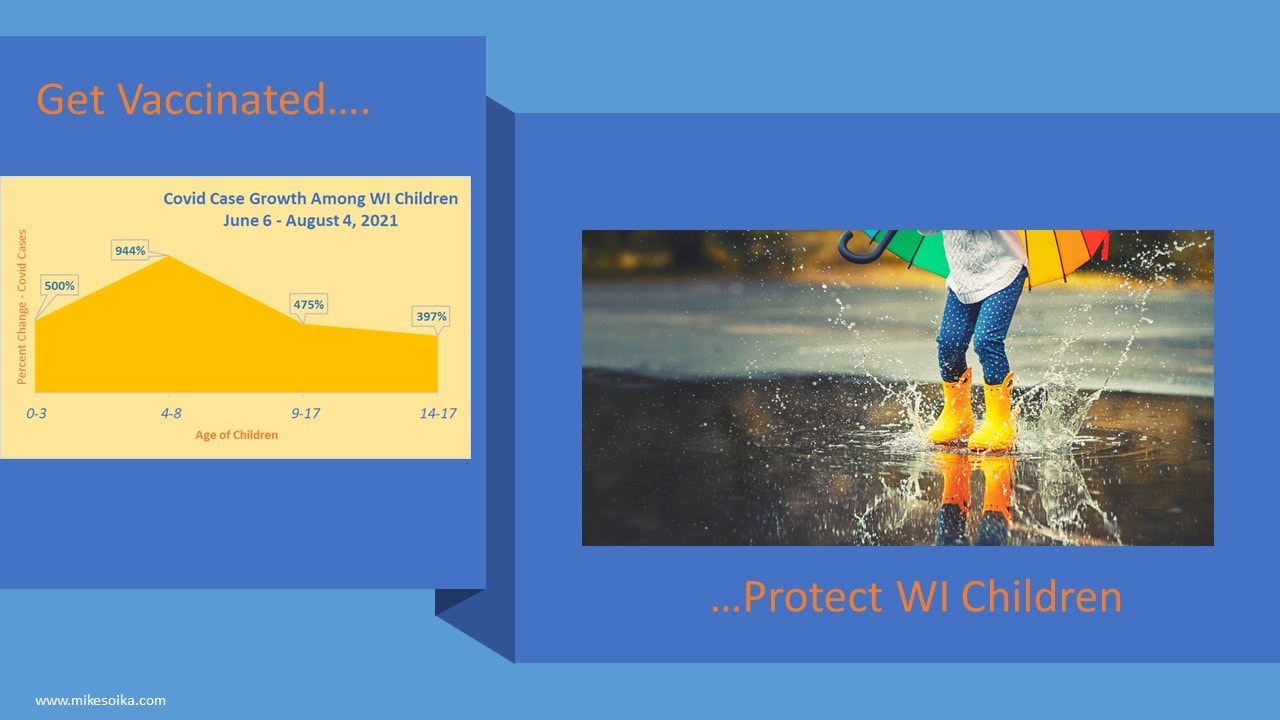
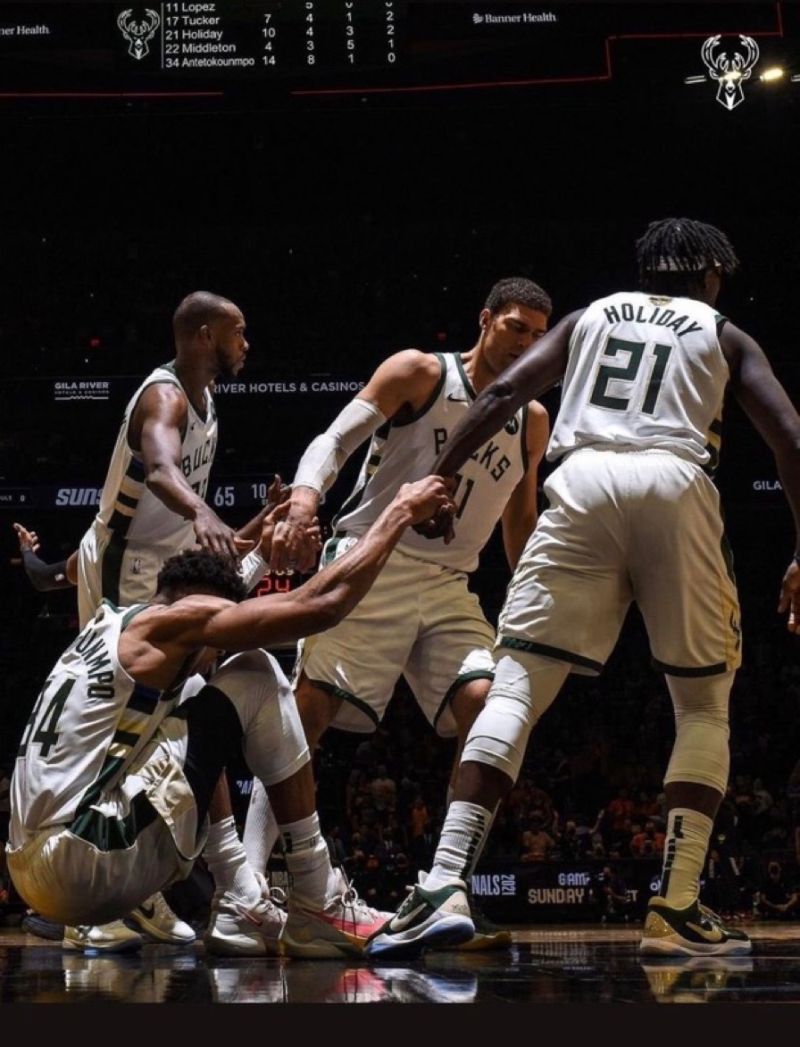
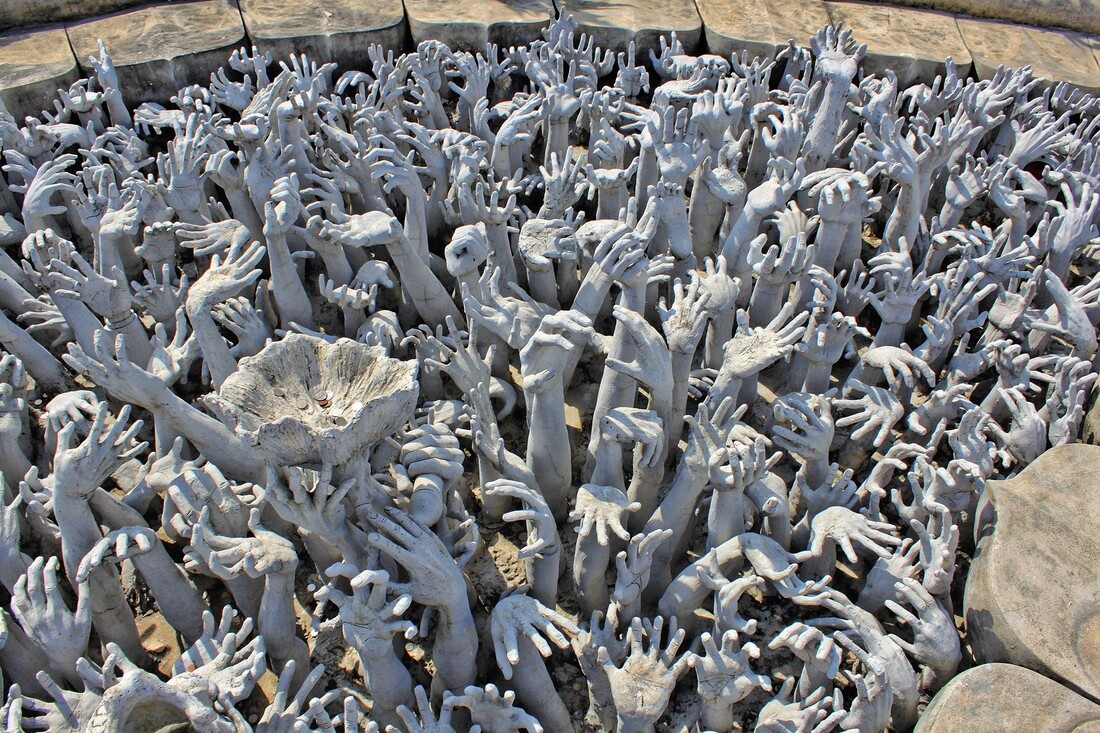
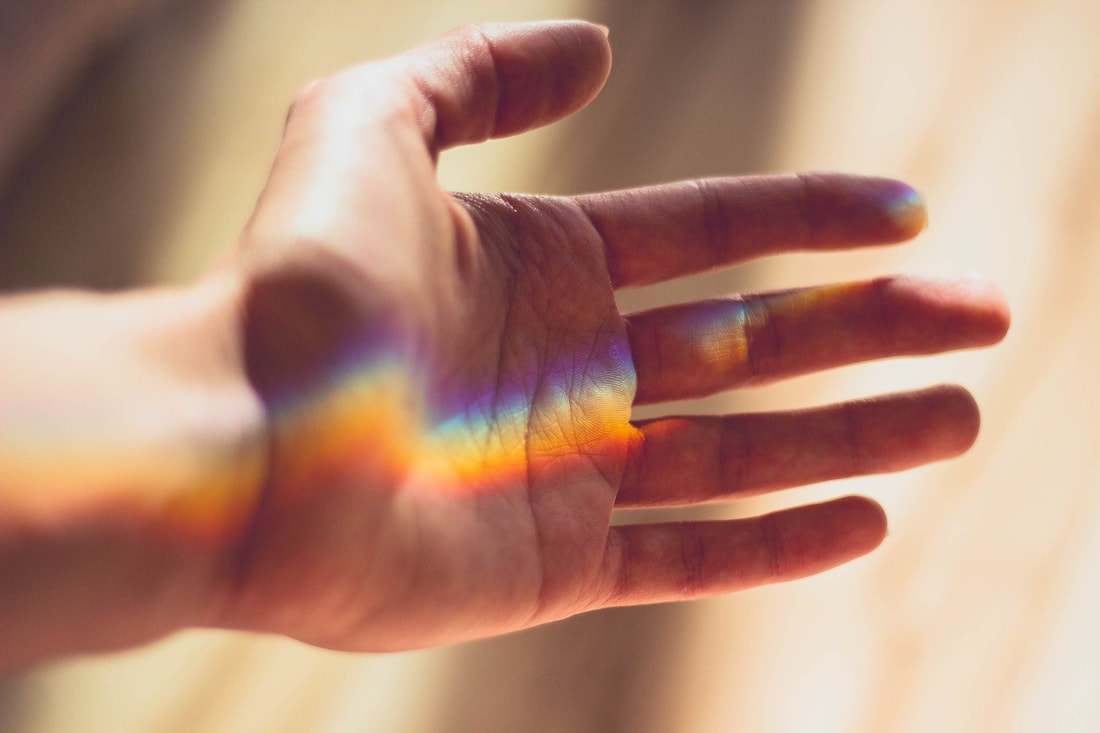
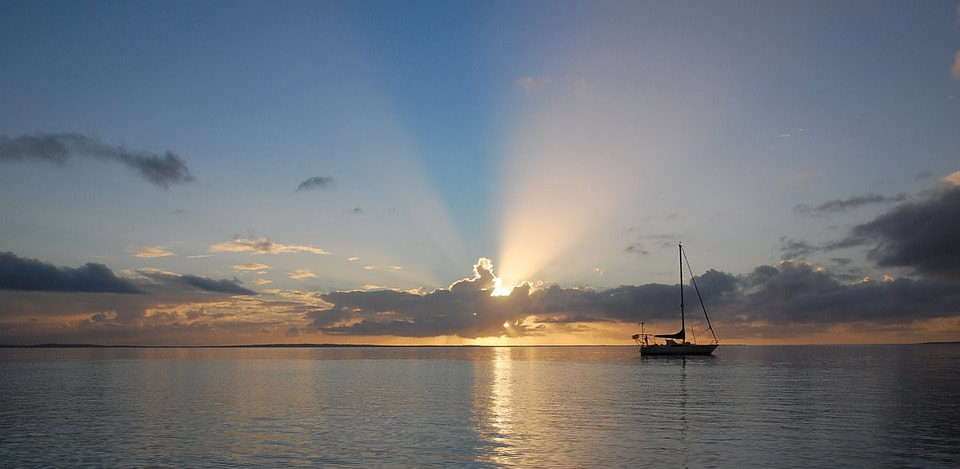
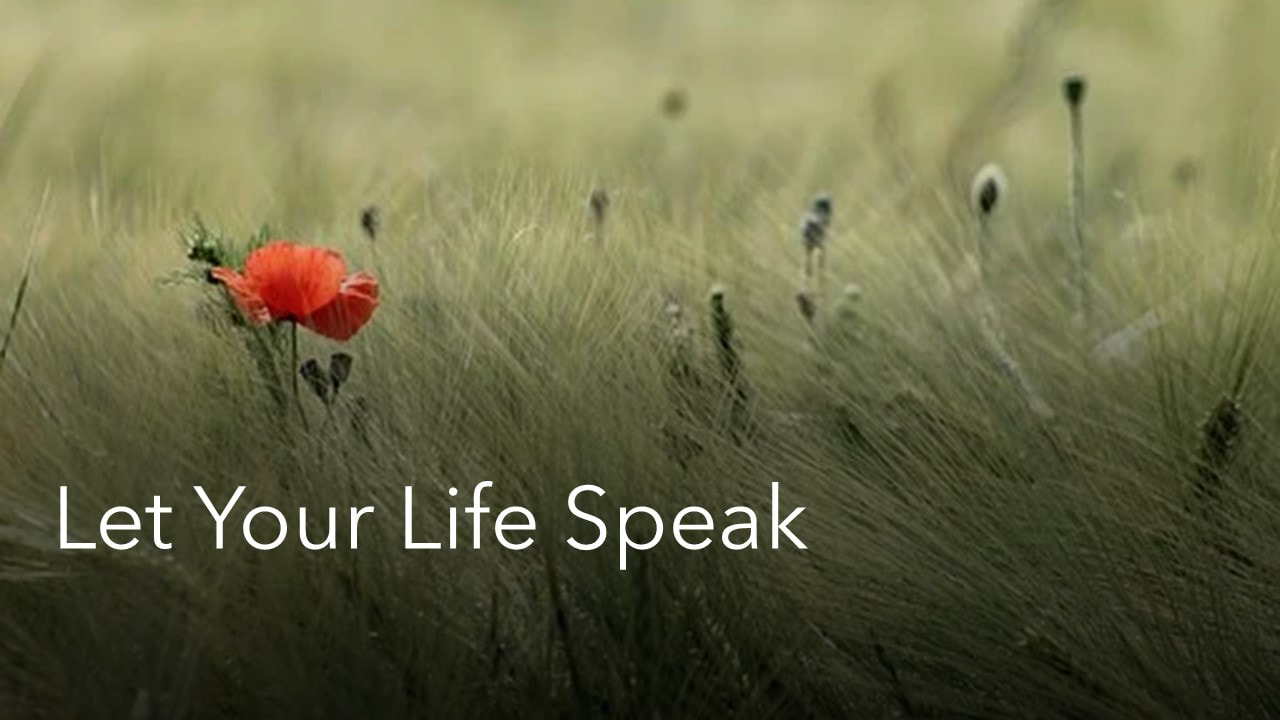
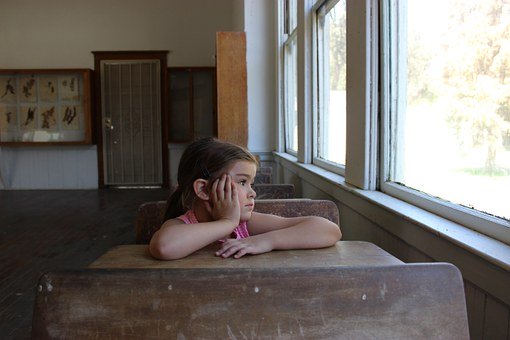
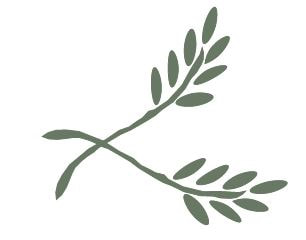
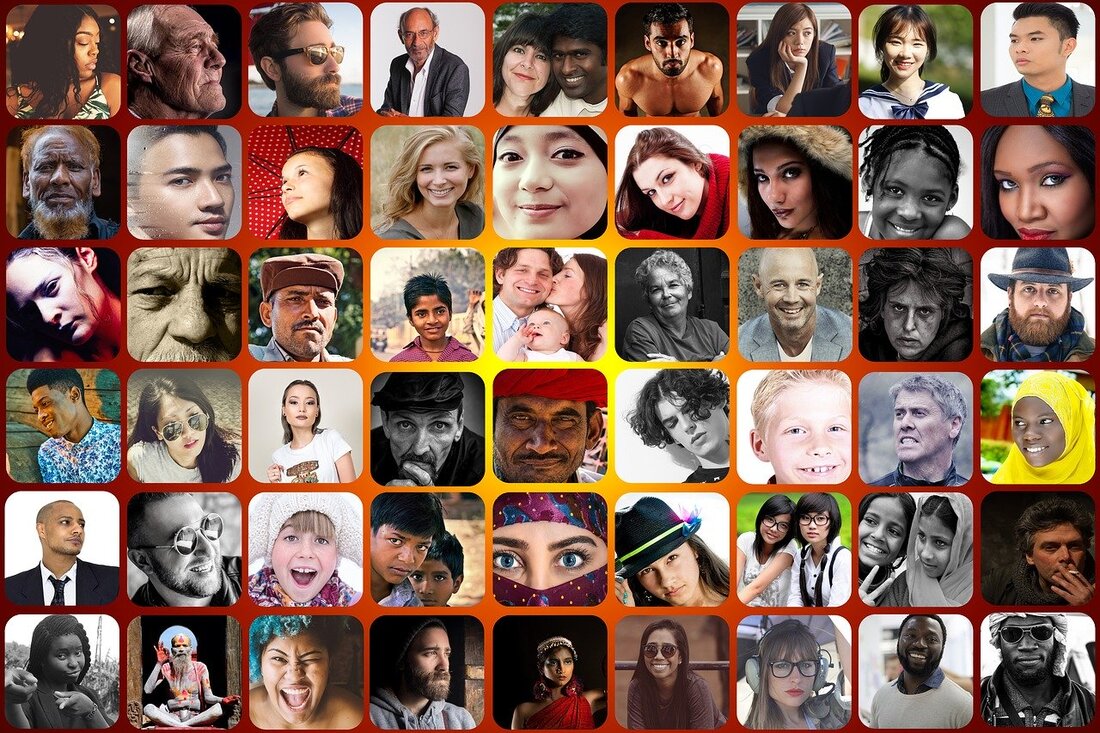
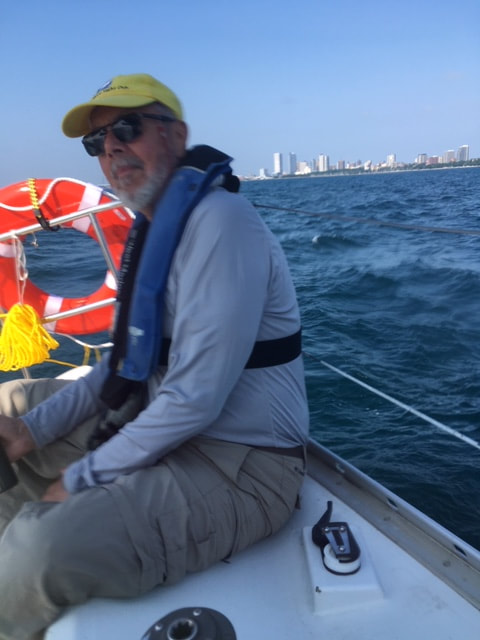
 RSS Feed
RSS Feed
